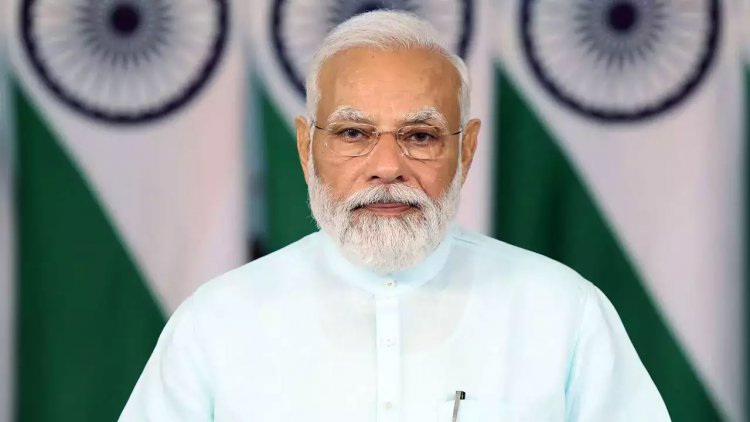Modi, industry friendship cracking?
STORIES, ANALYSES, EXPERT VIEWS

Presenting an alternate view, TCA Sharad Raghavan (Economy Editor at ThePrint) states ‘the overt friendship between the Modi government and broader corporate India is beginning to show some cracks.
“A few big corporates are happy, but most of the private sector doesn’t seem to be. The fault for this lies on both sides — on the government, for several of its stated and unstated policies, and on our corporate leadership that is too content staying quiet about their concerns.”
The government’s point of view
On the government’s side, and in its defence, “there are a number of significant steps it has taken to encourage the private sector to ramp up its investments. The most notable, of course, is the 2019 cut in corporate tax rates to levels comparable around the world. Rates were further reduced for new manufacturing investments. This was naturally widely hailed by corporate leaders and industry bodies across the board. Why wouldn’t it be? It directly increased the profits of corporate India.”
However, “the flip side of this compact was that they would then use these profits to invest in the country. This is where the agreement breaks down. Sure, the pandemic happened right after the tax cuts. But the companies used this time, and the benefit of lower rates, to downsize, increase profits, and clear their debt. This also cannot be completely grudged—they would obviously look after themselves before looking outwards.”
Problem: investments from private sector not forthcoming
The problem, writes Raghavan, “is that nothing much has happened on the investment front since then, even though the economy is back to robust growth. The finance minister Nirmala Sitharaman has since then called on the private sector to increase investments several times in interviews and speeches….”
In late 2022, Sitharaman seemed to lose patience and bluntly asked industry leaders why they were not investing, despite corporate tax rates being cut, production-linked incentives being brought in, and the government defending the private sector at every turn.
Companies abroad, too, aren’t as enthused by the India story: The thing is, that “companies abroad, too, aren’t as enthused by the India story as they once were. Not only is FDI into India falling, something even the Ministry of Finance noted in its latest Monthly Economic Review, India’s share in global FDI is also falling (something they conveniently left out).”
Private investments and FDI are falling even as “bank credit is still available, consumer demand is picking up in urban India and is really gathering pace among the upper income segments. RBI data shows capacity utilisation is at the 75 per cent mark, which is typically when companies look to increase capacity.”
Many investors wary of the government’s ‘arbitrary' actions
According to former chief economic advisor Arvind Subramanian “many investors in India and from abroad are wary of the government’s ‘arbitrary' actions, and that ‘regulatory favours’ to a few corporate houses have created the impression that the playing field is not quite level. Smaller investors don’t want to enter sectors where India’s big corporate players are dominant, not for fear of market forces, but for fear of non-market ones.”
The electoral bond data reveals major companies unwilling to donate to BJP
The discontent of smaller corporate India with the BJP government, argues Raghavan “can be seen from the electoral bond data as well. Yes, the BJP received the largest donations, but if you look closely, you’ll see that only 490 entities donated to the BJP, and 92 of these were individuals. About 42 per cent of the BJP’s donations came from just 10 companies…..
“If corporate India is happy with the BJP and presumably thus wants it back in power at the Centre, why didn’t we see them come out in much larger numbers to donate….
“Corporate India — especially the large majority not at the very top — has a message to send the Modi government. So far, it has been communicating silently by either not donating to the BJP, or by refraining from investing in the country.
“This silence — likely due to fear of government retaliation — not only hurts these companies by keeping them below potential, but also effectively renders a vital engine of India’s growth severely underpowered.”
Road to a developed economy by 2047
India is drawing up near, medium and longterm goals in line with its target to become a developed economy by 2047, with a focus on electric mobility, digitisation of payments infrastructure and high-speed expressways.
All central ministries will soon firm up plans indicating five-year budgetary requirements for better financial management.
Other key areas in focus: Extended producer responsibilities for goods such as cars, recycling centres for electronic waste like cell phones, comprehensive soil surveys, measures to raise farm output, holistic skilling of the country’s youth, speedier production from auctioned mines and extensive assessment of Indian geology, and increased manufacturing output with lower emission intensity are some of the other key areas in focus.
The overarching goal of both the short-term as well as medium and long-term plans, according to officials is to lift the country's economic growth and boost job creation, keeping in view social progress, environmental sustainability, and good governance.
Prime Minister Modi had rolled out the ‘Viksit Bharat’ @2047 initiative in December 2023 to make India a developed nation in the 100th year of its independence.
The Niti Aayog has estimated that the Indian economy will swell to $30 trillion by 2047, up from around $4 trillion now.















